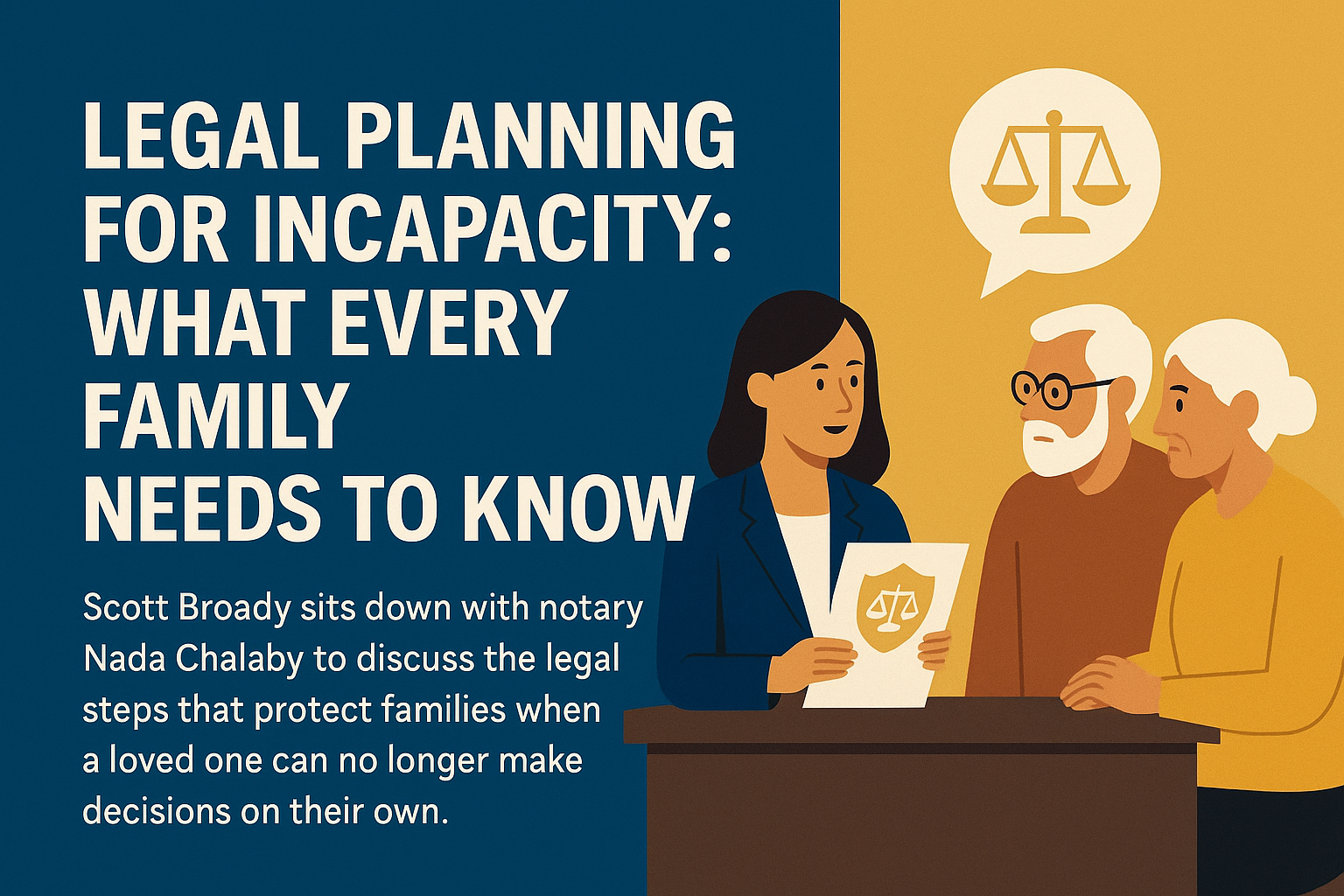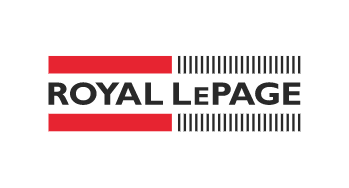If you’re helping aging parents or preparing for your own future, this episode of the Broady Windsor Group Podcast is one you shouldn’t skip. Scott Broady sits down with notary Nada Chalaby to discuss the legal steps that protect families when a loved one can no longer make decisions on their own.
Whether it’s managing finances, accessing bank accounts, or selling a family home, failing to plan ahead can lead to serious delays, emotional stress, and unexpected costs. Here’s what you need to know.
The Documents That Matter: Will, Power of Attorney, and Mandate
Wills are only used after someone passes away. They name heirs, guardians for children, and instructions for how assets should be distributed.
Power of attorney lets someone act on your behalf while you’re still of sound mind. This could be useful if you’re traveling, hospitalized, or simply want help managing finances.
Mandate of protection is what most people overlook. It only activates after someone becomes legally incapacitated and gives another person the right to manage both financial and medical decisions.
A will won’t protect your family during incapacity. You need a mandate for that.
When Incapacity Happens: What Triggers Action
Incapacity is usually declared when a person can no longer manage their own affairs due to cognitive issues like dementia, Alzheimer’s, or a medical condition like a coma. Before any legal mandate can be used, the following must happen:
- A doctor must perform a medical assessment
- A social worker must do a psychosocial evaluation
Only then can the mandate be homologated (activated by the court).
Why Homologation Matters
Even if a mandate of protection is signed, it means nothing until it’s homologated. In real estate, this is especially important. If a parent is incapacitated and the mandate isn’t active, you cannot sell the home. Notaries won’t sign off on the sale.
It also applies to managing investments, paying for long-term care, or even accessing a loved one’s bank account.
No Mandate? Welcome to Tutorship
When there is no mandate in place, families must go through a more complex legal process called tutorship. This includes:
- Choosing a legal representative (the tutor)
- Creating a tutorship council with three members and two backups
- Getting court approval for every major financial decision over $40,000
It’s time consuming, stressful, and can delay important decisions for months.
Build Your Advisory Team Early
Don’t wait until something happens. Nada recommends assembling a trusted group of professionals in advance:
- A notary who specializes in incapacity and homologation
- A family doctor or geriatric physician
- A licensed social worker
- A financial advisor or wealth manager
- A real estate broker
- A lawyer or accountant familiar with estate planning
These people will help guide you through the process when it matters most.
Real-Life Consequences of Waiting Too Long
Scott shares examples from the field, including:
- A homeowner who passed away without a will. The property couldn’t be sold and the mortgage went unpaid.
- Families stuck waiting for court approval while trying to pay for long-term care.
- Delays that led to missed tax deadlines, lost insurance benefits, and homes nearly going to auction.
In every case, proper planning could have saved months of stress and thousands of dollars.
What to Do Next
- Draft a mandate of protection and a will while you’re healthy
- Homologate the mandate as soon as incapacity begins
- Talk with your parents or adult children early so everyone understands the plan
- Avoid tutorship by preparing legal documents now
- Work with professionals who specialize in this area
Final Thought
If there’s one lesson from this episode, it’s simple. The worst time to plan is during a crisis. With the right preparation, you can protect your family’s assets, avoid legal delays, and support your loved ones with confidence.
Resources
- Nada Chalaby Notary
Website: nadachalaby.com
Phone: 514‑952‑6339 - Broady Windsor Group
Helpful homeowner guides at broadywindsor.com












